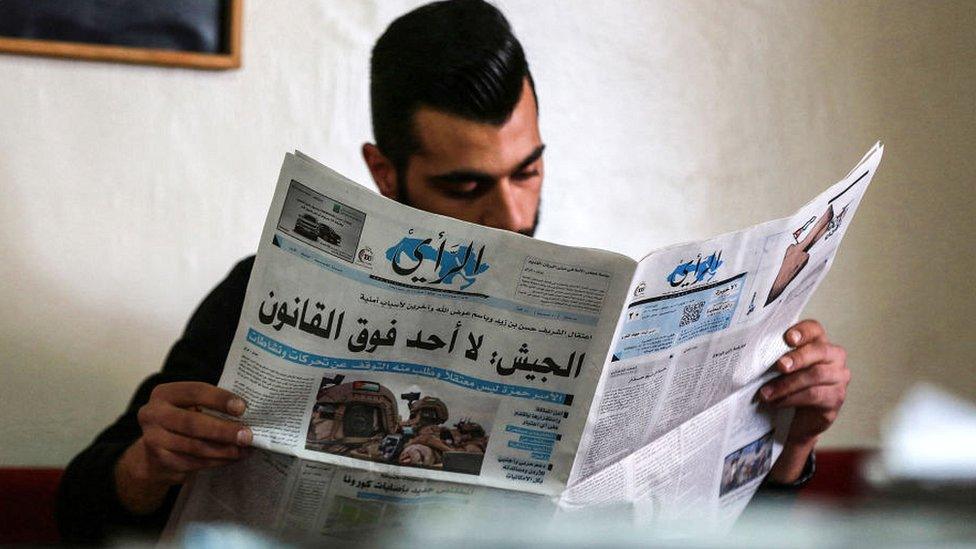Jordan media guide
- Published
This page is no longer being updated. It was last updated on 11 February 2025

Jordanian media take care not to cross red lines in their reporting. These include criticism of the political system, the monarchy, the military and religion.
Editorial curbs are often enforced through self-censorship, rather than coercion or repression. Outlets linked to the state take a strong pro-government line, while private media are more likely to criticise specific government policies.
TV is the most popular medium. The market is dominated by state-affiliated Jordan TV and Al-Mamlaka TV, and privately-owned Roya TV and Roya TV News.
Jordan is home to many commercial satellite TV stations, most of them entertainment-based, as well as outlets catering to foreign audiences, including major Libyan and Iraqi satellite networks.
There are dozens of radio stations, including privately-owned music stations. BBC World Service radio in Arabic can be heard on FM.
The printed press has declined, but there is a burgeoning online media scene. Social media are often used for news consumption. Political, religious and media figures are among Jordan's main online influencers.
The press law gives officials the power to block websites. News sites must have a licence from the government.
There were 10.3 million internet users by February 2024, comprising 91% of the population (Datareportal.com).
Press/Online
Addustour, external ("The Constitution") - privately-owned daily
Al Rai, external ("The Opinion") - privately-owned daily
Al Ghad, external ("Tomorrow") - privately-owned daily
Jordan Times, external - English-language daily, sister publication to Al Rai
Ammon News, external - news website, English-language pages
Ain News, external - news website
Amman Net, external - news website
7iber, external - online magazine
Television
Jordan Radio and Television, external - state-run, operates Jordan TV and Sport TV
Roya TV, external - privately-owned
Jordan Now, external - privately-owned
Amman TV, external - privately-owned
Al-Mamlaka, external ("The Kingdom") - state-affiliated news network
Radio
Jordan Radio and Television, external - state-run; services in Arabic, English and French
Hala FM, external - run by the army
Hayat FM, external - popular private station, religion-oriented
Play FM, external - private, pop music, English-language
News agency
Petra, external - state-run, operated by Information Ministry